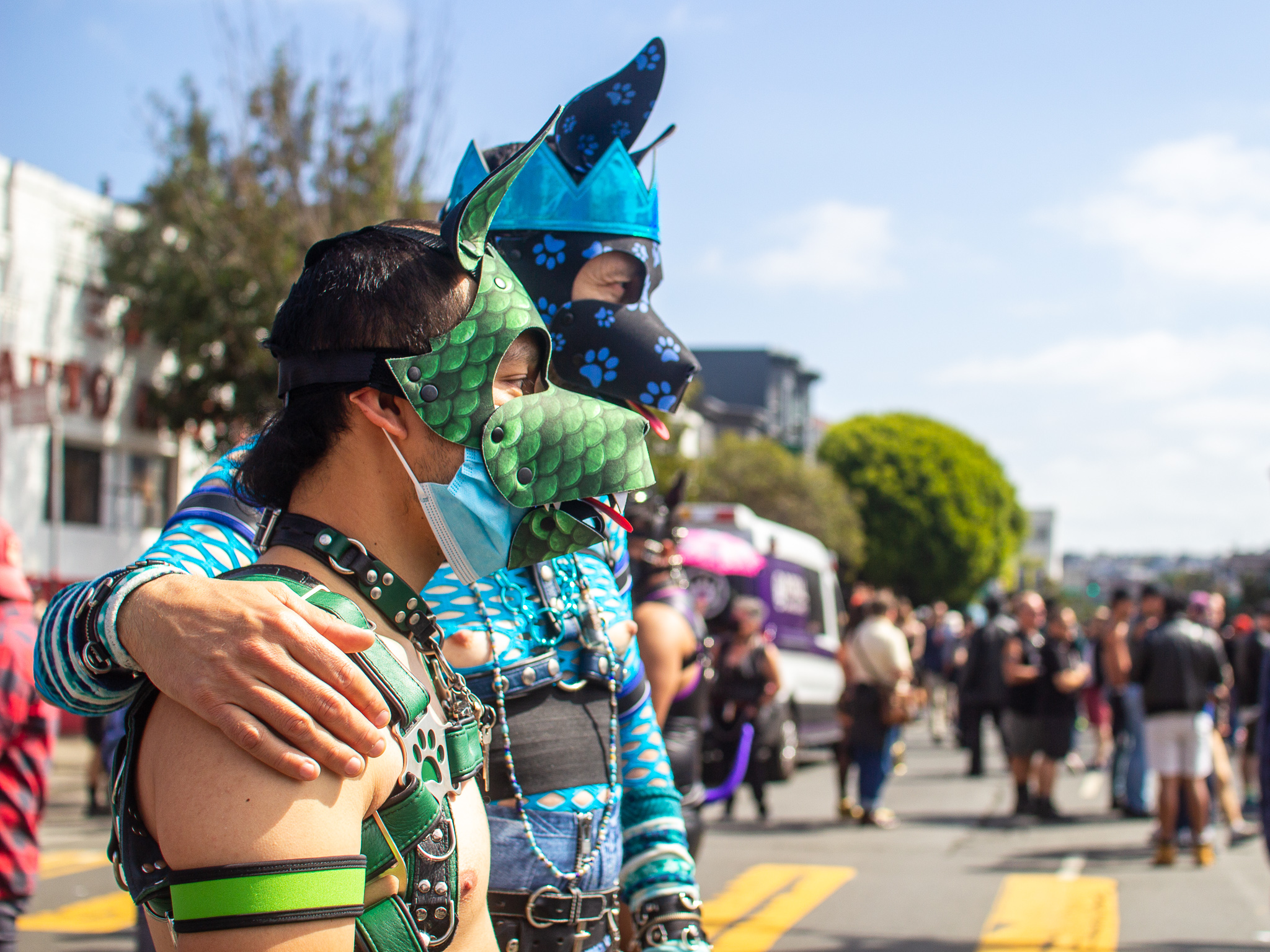Leather prom is finally upon us—a time when anyone can be a queen, a king, or whatever they desire. The Folsom Street Fair, SoMa’s 39th celebration of kink and alternative sexuality takes over the blocks between Eighth and 13th Streets on Sunday, making room for a matrix of dungeons and dance parties that form what is often identified as the world’s largest outdoor fetish festival.
There are at least a dozen satellite parties around the city all weekend. Saturday’s festivities converge at Oasis, a former bathhouse-turned-spacious nightclub famous for illustrious drag shows and cabaret. The club will host the final performance of Baloney, a “gay all-male revue that’s not entirely gay and not entirely male.” This year’s show, entitled “Baloney Gets Wet for Folsom,” showcases local striptease artists, acrobats and thespians.
The leathered throngs will have to wait a few more weeks for LeatherWalk 2022, which was rained out last weekend. The rescheduled parade and bar-crawl will begin at City Hall on Oct. 15 and arrive at the 11th St. Bearrison Street Fair for a celebration of body positivity.
Produced by nonprofit Folsom Street Events, the fair raises money for a variety of charities, including the PRC AIDS Emergency Fund, Dolores Street Community Services and the Transgender Law Center. Last year, Folsom found itself at a pandemic crossroads. Having lost 89% of the fair’s revenue in 2020, part of the proceeds from 2021 paid off debts from 2020. This year, Folsom has fully restored its grant-making program.
Sex positivity and queer visibility strike a particularly strong chord among many in 2022, a year that brought a smattering of anti-LGBTQ+ legislation across the country and the Supreme Court decision to overturn Roe v. Wade, denying reproductive health services to thousands of Americans.
Yet, while Folsom has historically centered sexual inclusivity, the greater leather and kink communities have not been immune to conflict and controversy over the years. After publishing a DEI strategic plan in 2021, Folsom’s public messaging reaffirmed the organization’s commitment to fight racism and other forms of oppression. Executive Director Angel Adeyoha wrote: “The very intense growing pains of the last year have brought us closer, and I’m committed to my part in continuing our growth in anti-racism, gender equity, disability justice and overall decolonization of sexual liberation.”
The fair draws upon SoMa’s rich history of queer culture, dating back to the 1940s, when thousands of male servicemen migrated to San Francisco and other port cities after receiving “blue discharges” based on their sexual orientation. Dotted with a constellation of bordellos and gambling parlors, SoMa was a working-class neighborhood where many single men resided. The first leather bar in SoMa was The Tool Box, opened in 1961. By the end of that decade, the neighborhood had become known as the epicenter of SF’s gay leather scene.
Like many downtown centers in the United States, SoMa fell on hard economic times in the 1980s. The AIDS crisis was leaving a trail of death and devastation in San Francisco and residents came together to heal their neighborhood. Led by Kathleen Connell and Michael Valerio, community activists organized sex positive events to raise money for health and human services. Folsom Street Fair made its debut in 1984 as a call to leather-clad arms against neighborhood erasure and displacement. Since those days, Folsom has inspired spinoff events in New York, Toronto and Berlin.
